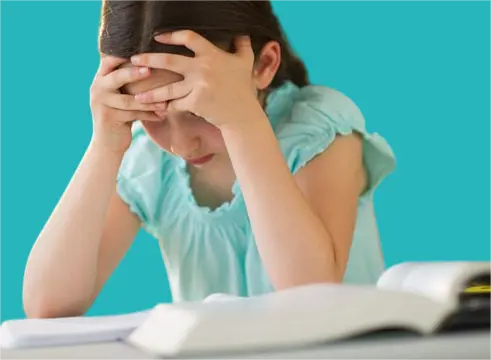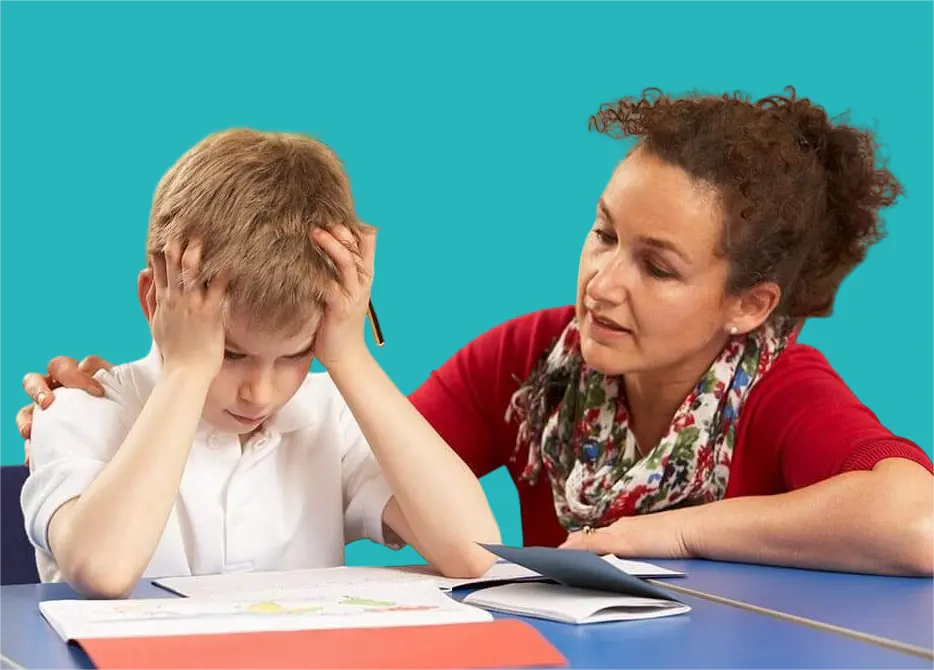Dyslexia is one of the most prominent learning difficulties facing children at an early age, directly affecting their reading and writing skills.
Although a child may be intelligent and normal in other areas, this disorder makes the learning process a difficult challenge.
What is Dyslexia?
Dyslexia is a neurological disorder that affects a child's ability to learn to read, write, and spell despite having normal or even above-average intelligence and a suitable learning environment.
A child with dyslexia does not mean they are less intelligent; rather, they have difficulty connecting letters and sounds and understanding written words.
Causes of Dyslexia in Children

There are some factors that cause dyslexia, including:
- Genetic factors, as the likelihood of developing dyslexia increases if a family member has the same problem.
- Dyslexia in the areas of the brain responsible for word processing.
- Lack of oxygen during pregnancy or premature birth may contribute to the condition.
- Disorders in auditory and visual processing in the child.
Symptoms that indicate a child has dyslexia
Symptoms vary depending on the child's age, and the most prominent are:
- At preschool age, the child may be delayed in speaking and learning letters and colors.
- At school age, the child may have difficulty reading and spelling words, and may have poor reading comprehension and spelling skills.
How is dyslexia diagnosed in a child?
Dyslexia is diagnosed through a series of psychological and educational tests, including:
- Intelligence tests.
- Speech and writing tests.
- Reading ability assessment.
- Parent interviews to determine a family history of dyslexia.
Note: It is preferable for the diagnosis to be made by specialists such as a child psychiatrist, speech therapist, or a teacher specializing in learning disabilities.
Impact of untreated dyslexia
If dyslexia is not treated at an early age, it may lead to:
- Lower academic achievement.
- Lack of self-confidence and feelings of failure.
- Behavioral problems due to frustration.
- Difficulty pursuing university studies or finding a job in the future.
Ways to Treat Dyslexia in Children

A child cannot completely recover from dyslexia, but they can improve significantly through:
- Specialized educational programs in phonemic awareness, i.e., associating letters with sounds.
- Using technology such as audiobooks or smart reading programs.
- Speech and language therapy by a specialist.
- Psychological support to boost the child's self-confidence.
Ways to Prevent Dyslexia
Complete prevention is not possible, but the incidence can be reduced through the following methods:
- Early detection through regular health checkups for hearing and vision.
- Enhancing language, speaking, and reading skills from early childhood.
- Talk to the child frequently, starting in the first few months.
- Using games that enhance language skills, such as flashcards.
Does technology affect the development or treatment?
No, technology does not cause dyslexia, as it is a neurodevelopmental disorder present from birth due to genetic or neurological factors. However, excessive and unregulated use of technology at an early age can negatively impact language and reading development, which may mimic the symptoms of dyslexia.
However, technology can also be used to help with parental supervision to improve listening and comprehension skills through audiobooks, and to support reading and writing using pronunciation and spelling programs.
How does dyslexia affect academic performance?
Dyslexia directly affects a child's academic performance, leading to:
- Difficulty understanding reading-based subjects such as science and social studies.
- The child's learning lags compared to their peers, leading to frustration.
- The child finds it difficult to perform well in exams due to slow reading and poor writing.
- Low grades and an inability to keep up with their peers in class.
What is the difference between dyslexia and other learning disabilities?
Dyslexia is a specific type of learning disability that relates only to language and reading.
Learning disabilities, on the other hand, are a broader term that includes problems with mathematics, such as difficulty calculating, writing, memory, and attention.
Summary of dyslexia and how it affects children's academic performance
Dyslexia is a neurological disorder that affects a child's ability to read and write. It occurs due to a defect in the way the brain processes words and sounds.
It often affects the child's academic level, for example, causing slower reading and writing compared to his peers, weak reading comprehension, which hinders the understanding of texts and textbooks, and of course, a decrease in the child's self-confidence.